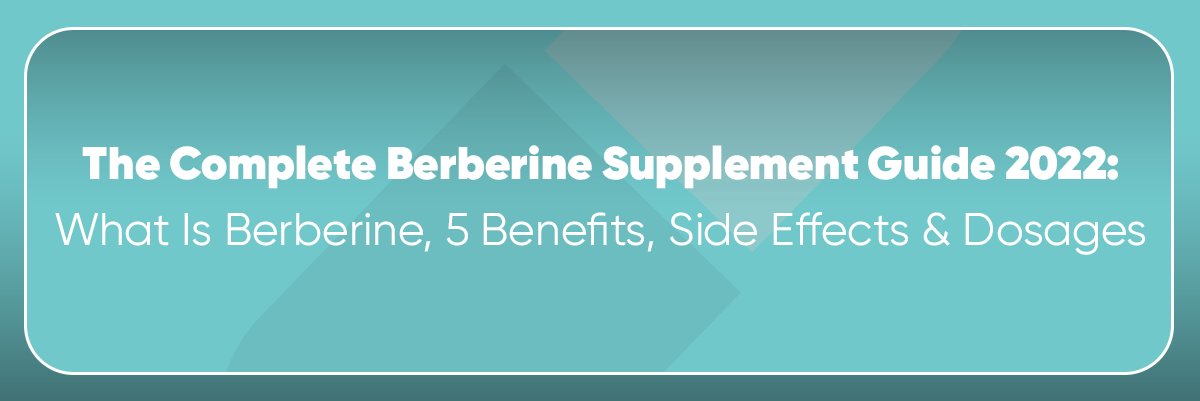Apigenin has long been recognised as a naturally occurring flavonoid found in some plant-based foods. New scientific studies are beginning to uncover its benefits to human health, including reducing anxiety and supporting healthy testosterone levels.
We are now able to achieve high intakes of this health-boosting antioxidant via supplementation. This enables you to attain the benefits of this flavonoid without stressing about dietary intake via food sources.
This review will explore what Apigenin is and how it works, assess its benefits in an Apigenin review, and will conclude with an FAQ section.
Table of contents
- What is Apigenin?
- Foods rich in Apigenin
- Apigenin Benefits Review
- What is the optimal Apigenin dosage?
What is Apigenin?
Apigenin is a naturally occurring compound found in some fruits, vegetables and herbs. Due to its function within humans, it is classified as an antioxidant flavonoid. Flavonoids play a vital role in keeping us healthy whilst preventing the development of chronic diseases, such as cardiovascular disease and dementia. Flavonoids also promote good health due to having antibacterial, antiparasitic, antiviral and antifungal properties. Apigenin in particular has specific and exclusive benefits, due to its biological structure.
What does Apigenin do?
Apigenin is a flavonoid with potent antioxidant and anti-inflammatory properties. In fact, a recent study found Apigenin to have higher antioxidant properties than any other flavonoid (1). Most of Apigenin's benefits are accredited to these qualities, as reducing oxidative stress and inflammation on a cellular level leads to numerous health benefits, including a greater sense of wellbeing, enhanced muscular recovery and delayed development of chronic diseases, such as dementia and cardiovascular disease. 9 of the most important health benefits associated with Apigenin intake will be discussed in the Apigenin Benefits Review section.
Foods rich in Apigenin
You can easily pick up foods high in apigenin from your local supermarket. It’s present in many fruits, vegetables and herbs.
Some examples of Apigenin sources;
- Spearmint
- Chamomile
- Dried Parsely
- Oranges
- Celery
Dried parsley has been reported to have the highest apigenin content out of all foods, at 45 mg/g, whereas Celery's apigenin content is much lower at 0.7mg/g from seeds and 0.2 mg/g from Chinese Celery. Additionally, Chamomile is often regarded as a powerful apigenin dense flower, especially when drank in tea form, containing 3 to 5 mg/g.
Apigenin Benefits
This article will now discuss Apigenin's health benefits and provide the evidence that has been put forward by the scientific literature to support these claims.
Increase Testosterone
Testosterone is respected as one of the most important hormones in the human body, especially in regard to muscle growth, fat loss, energy levels and libido. Unfortunately, as we age and due to lifestyle factors, our production of this male sex hormone begins to decline.
There is data to suggest that Apigenin supplementation could have beneficial effects on testosterone levels, which can improve cognitive and physical performance. One study published in 2011 showed Apigenin to significantly increase testosterone production in mice (2). Although this study was performed in mice, it is important to highlight that humans and mice are both mammals with a similar biological makeup. Therefore although the results are not directly translatable, this study does bring great promise, but human trials are needed for confirmation.
Apigenin may also amplify testosterone by inhibiting aromatase and 17B-HSD, which are both strongly correlated with increased rates of testosterone to estrogen conversion (3). Additionally, Apigenin's proven ability to lower cortisol (4) can boost testosterone, as elevated levels of this stress hormone are associated with lower testosterone levels.
Anabolic and Muscle Growth Benefits
As discussed in the previous section, Apigenin may increase testosterone and reduce cortisol levels, which creates an anabolic (muscle growth-promoting) environment in the body.
A further study has shown apigenin supplementation to promote muscle growth via promoting the upregulation of various pathways, such as Prmt7, and cause significant increases in the rates of muscle protein synthesis (5). This study also found Apigenin to stimulate the mTOR pathway thus increasing muscle size by up-regulating the expression of Insulin-like Growth Factors 1 & 2.
Supports Weight Loss
Direct evidence supporting Apigenin's ability to cause weight loss is weak and limited, however, it has been shown to increase a powerful coenzyme called NAD+. NAD+ is involved in numerous metabolic processes but turning food into energy, and regulating metabolism appears to be its most critical. As we age, NAD+ levels decline, and evidence is beginning to suggest that if levels are maintained its fights against the ageing process and obesity. Apigenin was able to increase NAD+ in obese mice and consequently benefited fat and glucose metabolism (6). More studies are required as this research is preliminary.
Sleep and Anxiety Support
Apigenin sleep and relaxation benefits are largely accredited to its ability to reduce feelings of anxiety and increase feelings of sedation. This could largely be due to its ability to reduce cortisol levels (7).
Firstly, Apigenin may reduce anxiety symptoms. A clinical randomised controlled trial found chamomile extract (standardised to 1.2% apigenin) to reduce feelings of anxiety compared to placebo in those with an anxiety disorder (8). Secondly, a study performed on mice found Apigenin to augment total sleep time and rate (9).
Enhance Brain Function
There is incredibly promising research emerging about Apigenin's neuroprotective qualities. The most significant study suggests that Apigenin may be able to delay the onset of Alzheimer’s disease and decrease its rate of progression. Based on the results from a broad array of studies, they concluded that Apigenin is an exceptional candidate for anti-inflammatory therapy against Alzheimer’s disease, and can even improve memory in mice with Alzheimer’s disease (10).
Pain Relief
Due to its anti-inflammatory properties, Apigenin can reduce discomfort and pain caused by inflammatory issues, such as delayed onset muscle soreness, digestive issues and migraines. Research has shown this compound to reduce the release of cytokines, and it is these molecules that are associated with feelings of pain (11).
Fights Against Cancer
Cancer is a disease where cells grow uncontrollably and spread to other parts of the body. Chemotherapy is promoted as the best way to manage and kill cancer cells, despite its undesirable side effects. Therefore, scientists are testing and trialling compounds, like Apigenin, to treat various forms of this condition.
A 2017 review reported Apigenin suppresses the growth of multiple forms of human cancers in living organisms and in Petri dishes, via various pathways, including stimulating an immune response, suppressing cell invasion and triggering cancer cell death. These anti-cancer effects are supported in many studies and have been shown to have low to no toxicity in normal cells (12). However, the results are not conclusive and the standard medical practices, such as chemotherapy, remain the most effective.
Improves Hair and Skin Health
Separate from its mental and physical performance-enhancing benefits, Apigenin also possesses beauty advantages.
Firstly, the results from Huh and colleagues (13) suggest that Apigenin stimulates hair growth via the downregulation of the TGF-beta1gene. Secondly, Apigenin may be effective at treating inflammatory skin conditions and has a natural UV-protective effect. Additionally, research has shown Apigenin to improve the skin’s extrinsic immunity (14).
Improves Heart Health
Apigenin can improve your cardiovascular health by reducing inflammation and blood pressure, which are two of the most significant risk factors regarding heart health. This benefit was shown in a study conducted on rats. This study has shown Apigenin to have cardioprotective effects in heart damaged rats. The researchers suggest that this is due to Apigenin's ability to suppress myocardial apoptosis (heart cell death) and inflammation by decreasing the activity of a major inflammatory pathway (15).
What is the recommended Apigenin dosage?
Different doses of Apigenin have been used in the clinical results, and even at high doses, no toxicity has been reported. Therefore, one may suggest larger doses in order to reap the maximal benefits, although research does when that side effects are more likely at high dosages. In clinical research higher doses are required for specific conditions, but there are no guidelines at the moment. There is no Apigenin dosage for testosterone support for humans in the current research, however, higher doses do seem to be recommended. Apigenin 50mg to 100mg is the dosage used in most supplements on the market. As dried parsley provides 45mg per gram, these doses would appear safe and appropriate. German Pharma have released their own Apigenin supplement that delivers 150mg per serving.
FAQ: Apigenin supplement
What is the digestibility of Apigenin in supplement form?
Additionally, Apigenin bioavailability is optimal in capsule form. This was demonstrated in a 2021 study assessing Apigenin's ability to fight against gastrointestinal cancer, which found capsule form to be the most efficient way for Apigenin to reach the bloodstream and target tissues.
Where to buy Apigenin?
German Pharma have recently released their own Apigenin supplement, that delivers 150mg per serving.
What are the Apigenin side effects?
All the current research suggests that Apigenin is safe, even at doses exceeding what you would usually require through diet alone. However, if you experience any sort of digestive issues or irritations following ingesting, you should stop using the product. Speak to a healthcare professional before using Apigenin to treat a condition.
Can women take Apigenin?
As Apigenin is a naturally occurring flavonoid found in common foods, Apigenin is generally safe for both men and women. However, research now suggests that women on hormone replacement therapy shouldn't supplement pure Apigenin as issues are being raised.
How much Apigenin for sleep?
Doses as low as 2.5mg have been used to improve sleep. Upper doses are shown to be safe.
When to take Apigenin?
Due to its ability to reduce stress and promote relaxation, we advise taking Apigenin one hour before bedtime.
Can I take Apigenin when pregnant or breastfeeding?
Due to lack of research, we do recommend you do not take Apigenin when pregnant or breastfeeding.
Check out this great informative video on Apigenin here :





1 comment
Neil
Would this help improve type 2 diabetes control by improving my immune system?
Leave a comment
All comments are moderated before being published.
This site is protected by hCaptcha and the hCaptcha Privacy Policy and Terms of Service apply.